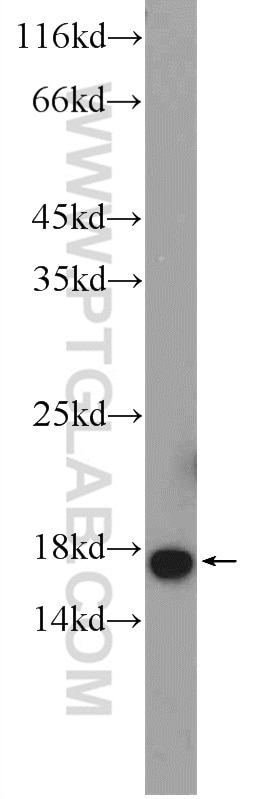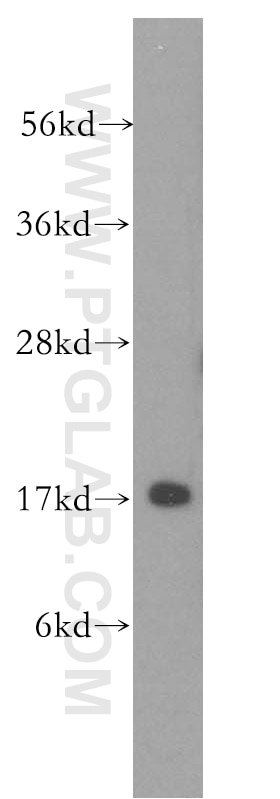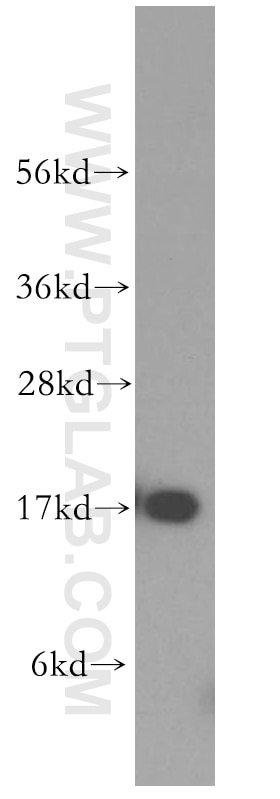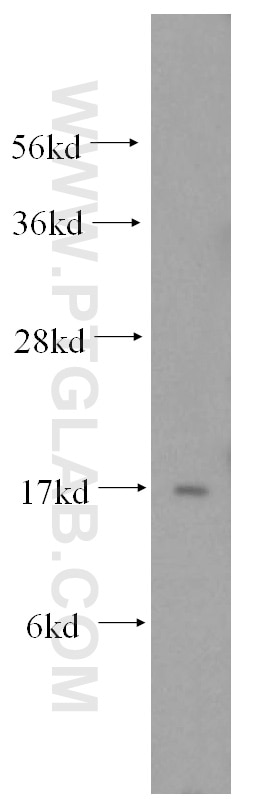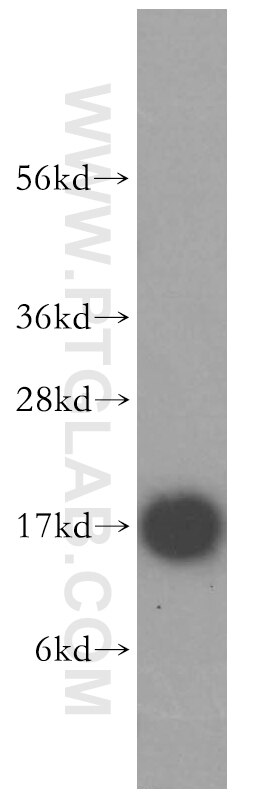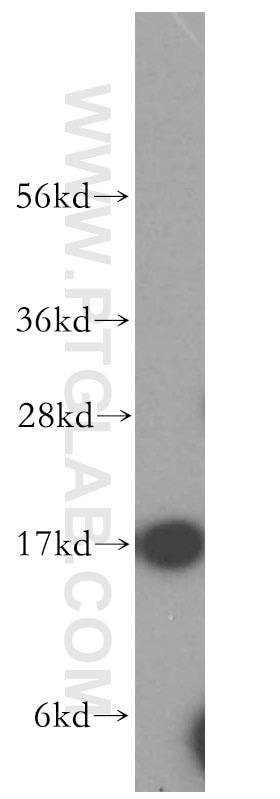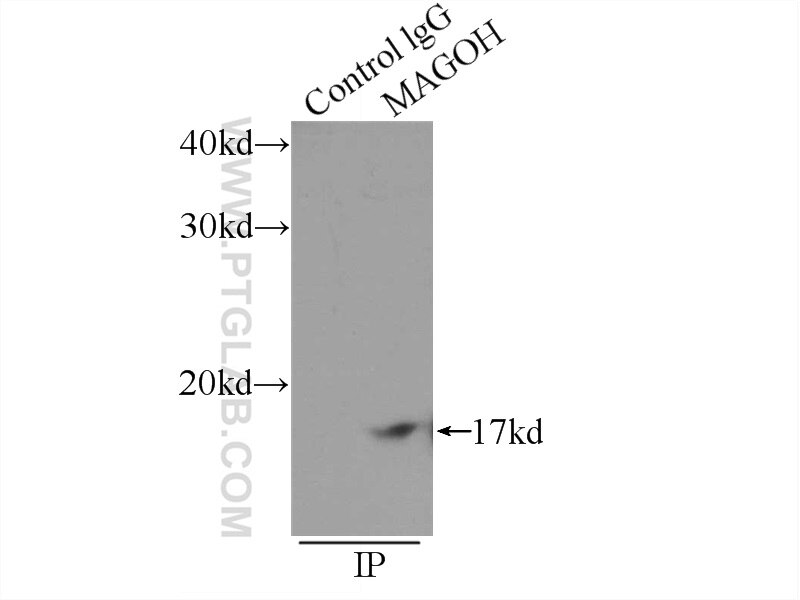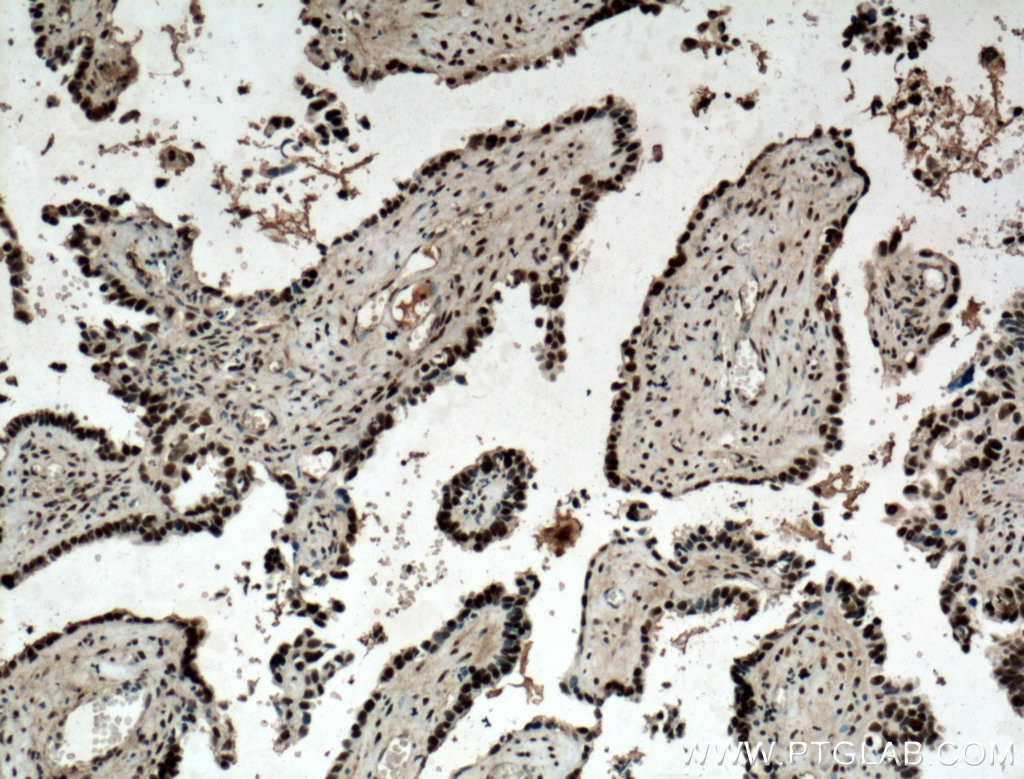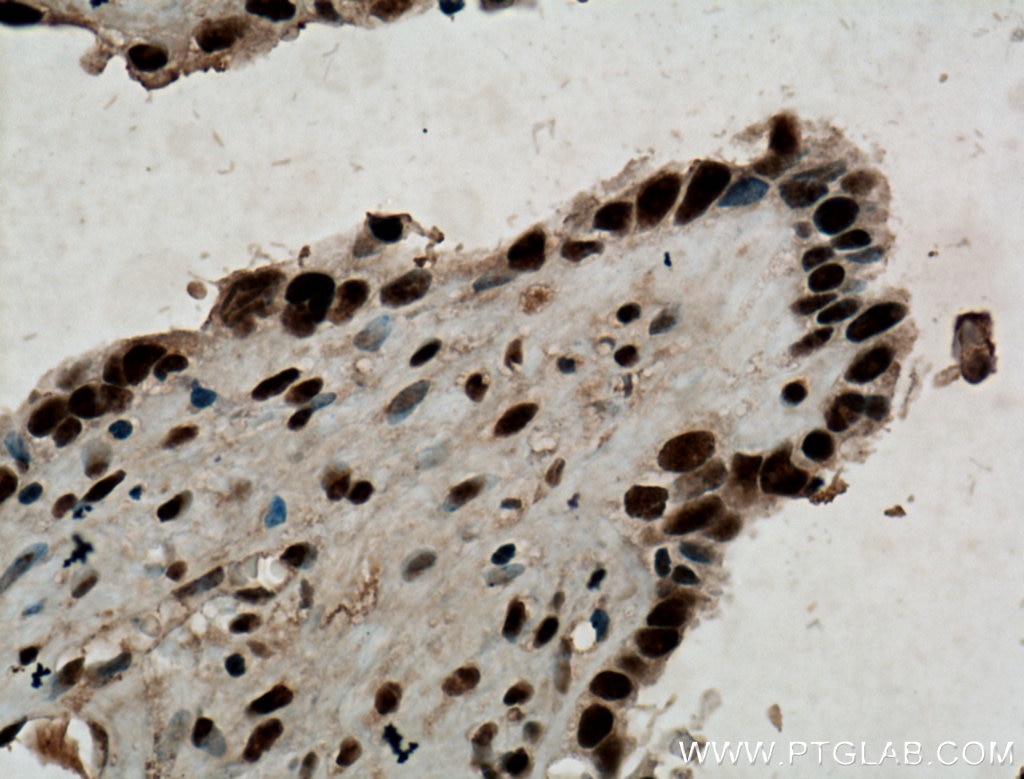Tested Applications
| Positive WB detected in | K-562 cells, HeLa cells, HL-60 cells, human brain tissue, Raji cells |
| Positive IP detected in | K-562 cells |
| Positive IHC detected in | human ovary tumor tissue Note: suggested antigen retrieval with TE buffer pH 9.0; (*) Alternatively, antigen retrieval may be performed with citrate buffer pH 6.0 |
Recommended dilution
| Application | Dilution |
|---|---|
| Western Blot (WB) | WB : 1:500-1:2000 |
| Immunoprecipitation (IP) | IP : 0.5-4.0 ug for 1.0-3.0 mg of total protein lysate |
| Immunohistochemistry (IHC) | IHC : 1:50-1:500 |
| It is recommended that this reagent should be titrated in each testing system to obtain optimal results. | |
| Sample-dependent, Check data in validation data gallery. | |
Published Applications
| KD/KO | See 1 publications below |
| WB | See 7 publications below |
| IHC | See 3 publications below |
| IF | See 2 publications below |
| IP | See 1 publications below |
Product Information
12347-1-AP targets MAGOH in WB, IHC, IF, IP, ELISA applications and shows reactivity with human samples.
| Tested Reactivity | human |
| Cited Reactivity | human, mouse |
| Host / Isotype | Rabbit / IgG |
| Class | Polyclonal |
| Type | Antibody |
| Immunogen |
CatNo: Ag3004 Product name: Recombinant human MAGOH protein Source: e coli.-derived, PGEX-4T Tag: GST Domain: 1-146 aa of BC018211 Sequence: MESDFYLRYYVGHKGKFGHEFLEFEFRPDGKLRYANNSNYKNDVMIRKEAYVHKSVMEELKRIIDDSEITKEDDALWPPPDRVGRQELEIVIGDEHISFTTSKIGSLIDVNQSKDPEGLRVFYYLVQDLKCLVFSLIGLHFKIKPI Predict reactive species |
| Full Name | mago-nashi homolog, proliferation-associated (Drosophila) |
| Calculated Molecular Weight | 146 aa, 17 kDa |
| Observed Molecular Weight | 17 kDa |
| GenBank Accession Number | BC018211 |
| Gene Symbol | MAGOH |
| Gene ID (NCBI) | 4116 |
| RRID | AB_2265988 |
| Conjugate | Unconjugated |
| Form | Liquid |
| Purification Method | Antigen affinity purification |
| UNIPROT ID | P61326 |
| Storage Buffer | PBS with 0.02% sodium azide and 50% glycerol, pH 7.3. |
| Storage Conditions | Store at -20°C. Stable for one year after shipment. Aliquoting is unnecessary for -20oC storage. 20ul sizes contain 0.1% BSA. |
Background Information
MAGOH, belonging to the mago nashi family, is a component of a splicing-dependent multiprotein exon junction complex (EJC) deposited at splice junction on mRNAs. The EJC is a dynamic structure consisting of a few core proteins and several more peripheral nuclear and cytoplasmic associated factors that join the complex only transiently either during EJC assembly or during subsequent mRNA metabolism. Core components of the EJC functions to mark the position of the exon-exon junction in the mature mRNA and thereby influences downstream processes of gene expression including mRNA splicing, nuclear mRNA export, subcellular mRNA localization, translation efficiency and nonsense-mediated mRNA decay (NMD). MAGOH regulates the transcriptional activation of STAT3 by interfering complex formation between STAT3 and a core EJC component Y14.
Protocols
| Product Specific Protocols | |
|---|---|
| IHC protocol for MAGOH antibody 12347-1-AP | Download protocol |
| IP protocol for MAGOH antibody 12347-1-AP | Download protocol |
| WB protocol for MAGOH antibody 12347-1-AP | Download protocol |
| Standard Protocols | |
|---|---|
| Click here to view our Standard Protocols |
Publications
| Species | Application | Title |
|---|---|---|
Cell Metab NEAT1 is essential for metabolic changes that promote breast cancer growth and metastasis. | ||
Nat Neurosci The exon junction complex component Magoh controls brain size by regulating neural stem cell division. | ||
PLoS Genet Haploinsufficiency for Core Exon Junction Complex Components Disrupts Embryonic Neurogenesis and Causes p53-Mediated Microcephaly. | ||
Development Dosage-dependent requirements of Magoh for cortical interneuron generation and survival. | ||
J Exp Zool B Mol Dev Evol Mago, a vertebrate homolog of Drosophila Mago nashi protein, is a component of the chromatoid body in the cytoplasm of the postmeiotic spermatid. |

